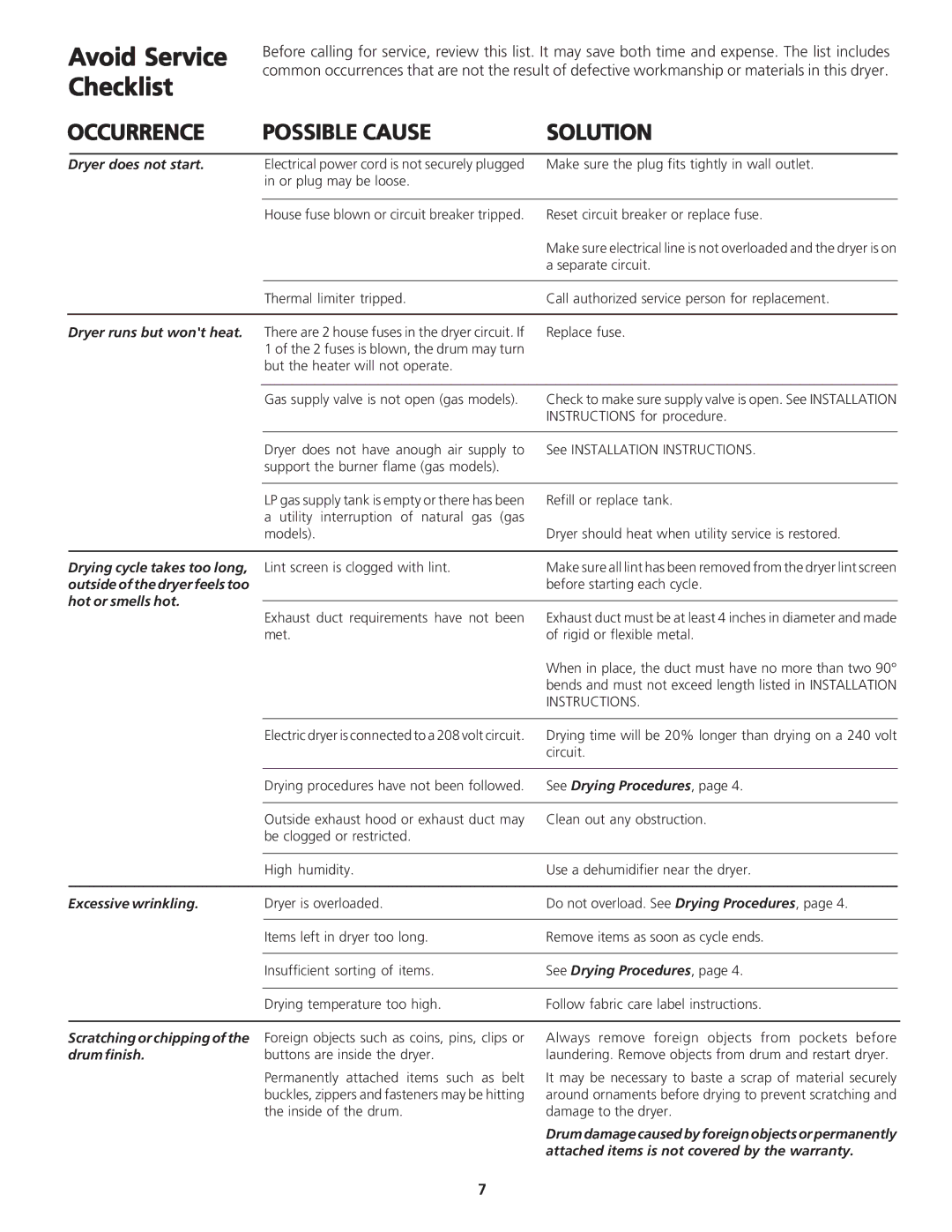White-Westinghouse DRYER specifications
The White-Westinghouse dryer is a renowned appliance that combines advanced technology with practical design, making it an essential addition to modern households. Known for its reliability and performance, this dryer is engineered to handle diverse laundry loads efficiently while maintaining fabric integrity.One of the standout features of the White-Westinghouse dryer is its impressive capacity. With ample drum space, it can accommodate large loads, allowing users to dry more clothes in a single cycle. This efficiency is particularly beneficial for families or individuals with busy lifestyles, as it reduces drying time and energy consumption.
Equipped with advanced drying technology, the White-Westinghouse dryer offers multiple drying cycles and options. Users can choose from settings tailored to different fabric types, such as cottons, delicates, and permanent press. This versatility ensures that garments are dried effectively while minimizing the risk of damage. Moreover, the sensor drying feature is a significant innovation, automatically detecting moisture levels and adjusting the drying time accordingly. This not only enhances drying efficiency but also prevents over-drying, preserving the quality of clothes.
Energy efficiency is another cornerstone of the White-Westinghouse dryer. Many models are designed to meet ENERGY STAR standards, helping consumers save on their utility bills while reducing their carbon footprint. The dryer often includes features like an eco-friendly drying cycle that uses less energy without compromising performance.
In terms of user-friendliness, the White-Westinghouse dryer incorporates intuitive controls and an easy-to-read display. Many users appreciate the clear settings, which simplify the process of selecting the ideal drying cycle. Additionally, a reversible door option allows for flexible installation, making it suitable for various laundry room layouts.
Safety features are also prominent in the White-Westinghouse dryer. The appliance typically includes a lint filter that is easy to clean, ensuring optimal airflow and reducing the risk of fire hazards. Some models even come with a drum light, enhancing visibility when loading and unloading laundry.
Overall, the White-Westinghouse dryer is a versatile, efficient, and user-friendly appliance. With its array of features and modern technologies, it stands out in the competitive home appliance market, making laundry days easier and more efficient for households everywhere.

